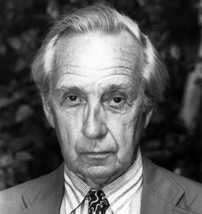|
A
Force Behind the U.N.

By
Sir
Brian Urquhart
Former UN Under-Secretary-General with
special responsibility for peacekeeping
operations
TFF
associate
August 20, 2003
YRINGHAM, Mass.- Ralph Bunche was born in Detroit 100
years ago today (August 7, 2003). His passionate
determination to get results did not extend to seeking
credit for them, so his work is better remembered than he
is. Of all his many accomplishments - civil rights
pioneer, Nobel Peace Prize laureate, chief drafter of two
chapters of the United Nations charter, negotiator of the
armistices that ended the first Arab-Israeli war - Bunche
said he was proudest of developing what came to be known
as peacekeeping.
Setting up the United Nations Truce Supervision
Organization in Palestine in 1948, Bunche formulated the
principles that have governed peacekeeping operations
ever since. In the 1956 Suez crisis, working with
Secretary General Dag Hammarskjold and Lester Pearson of
Canada, he organized the first peacekeeping force, the
United Nations Emergency Force in Egypt, whose presence
provided a face-saving pretext for the withdrawal from
Egypt of the armies of Britain, France and Israel.
Bunche always insisted on the need for a speedy
response to critical situations. Under his energetic and
imaginative leadership, the blue helmets of the emergency
force, then an untried experiment that few people had
much confidence in, arrived in the Suez Canal zone just
eight days after the decision was made to send it. "We
wanted," he told the governments providing the troops,
"to demonstrate that the United Nations resolution was
not an empty gesture, and to avoid the development of a
vacuum in the area." He added later, "We had a
resolution, but I think not many people thought that very
much could be done quickly about it."
In the 1960 Congo crisis, with its frightening cold
war overtones, Bunche and Hammarskjold, with the help of
a large United States airlift, got 3,000 peacekeeping
troops to the Congo within four days of the Security
Council decision to send them, and 10,000 more in the
next three weeks.
I wonder how Bunche, who died in 1971, would have
reacted to the delays, despite Secretary General Kofi
Annan's pleas, in sending peacekeepers to arrest the
horrors of northeastern Congo or Liberia as well as in
other places in the recent past. It is true that the
compelling cold war need for peacekeeping forces to keep
regional conflicts out of the orbit of East-West
hostility no longer exists. And after so many
peacekeeping operations, and one or two disasters,
governments are less willing to have their soldiers
involved in a distant conflict of no discernible national
interest to their own countries.
But in the age of humanitarian intervention, the human
catastrophes of failed states and civil wars will
continue to come before the Security Council. If the
United Nations' members can no longer urgently provide
the necessary peacekeeping troops to moderate desperate,
if politically insignificant, situations, some
alternative must be found - unless of course, its
membeers were to conclude that the Security Council has
no responsibility in such matters.
Everyone involved, including the United States, has
now expressed remorse for the failure to stop the Rwanda
genocide nine years ago. How many more human disasters
will fester and multiply before an effective means of
international intervention is found? From a purely
practical point of view, a highly trained rapid reaction
force, permanently at the disposal of the Security
Council, would be the most efficient way of spearheading
international efforts to deal with the Liberias of the
future. Even to mention this idea is heresy in some
circles in Washington, and it is disliked by some
governments, but amid the desperate appeals for help from
victims of anarchy and civil war, surely it deserves
renewed consideration.
The existence of such a force would, incidentally,
relieve the United States and other countries of painful
decisions like the one they have recently faced over
Liberia. There are plenty of arguments against such a
force. There is one overwhelming argument for it. It is
desperately needed.
Ralph Bunche was a unassuming man - he never bothered,
for instance, to correct a common misapprehension that he
was born in 1904. He was also a very practical, and
extremely responsible, man. He disliked dilly-dallying
with human tragedy and despised failures to respond to
those in dire need. He was always prepared to look for
new solutions when old ones had failed. I believe Ralph
Bunche would have seen a rapid reaction force as an
essential and timely expansion in the international
community's capacity for helping the millions now
afflicted by anarchy and civil war.
©
TFF & the author 2003

Tell a friend about this article
Send to:
From:
Message and your name
|